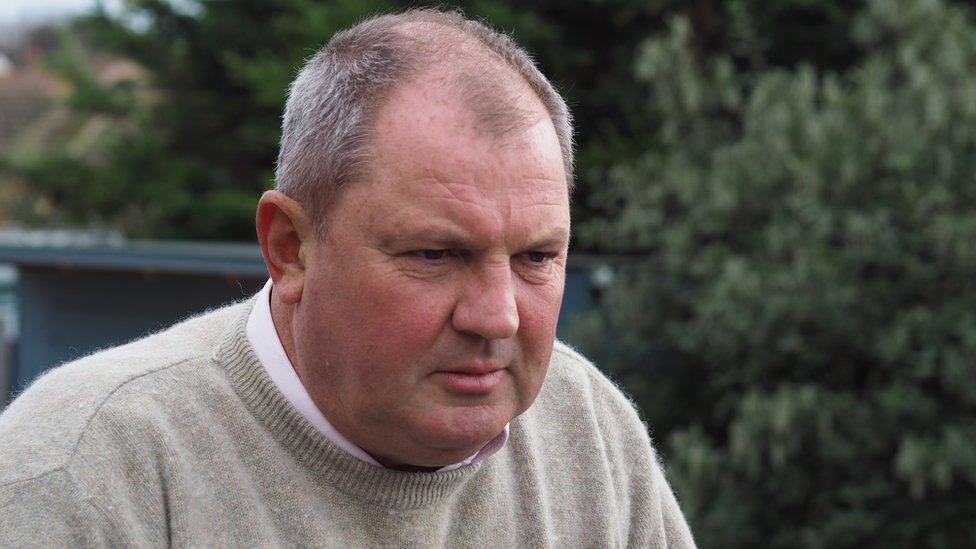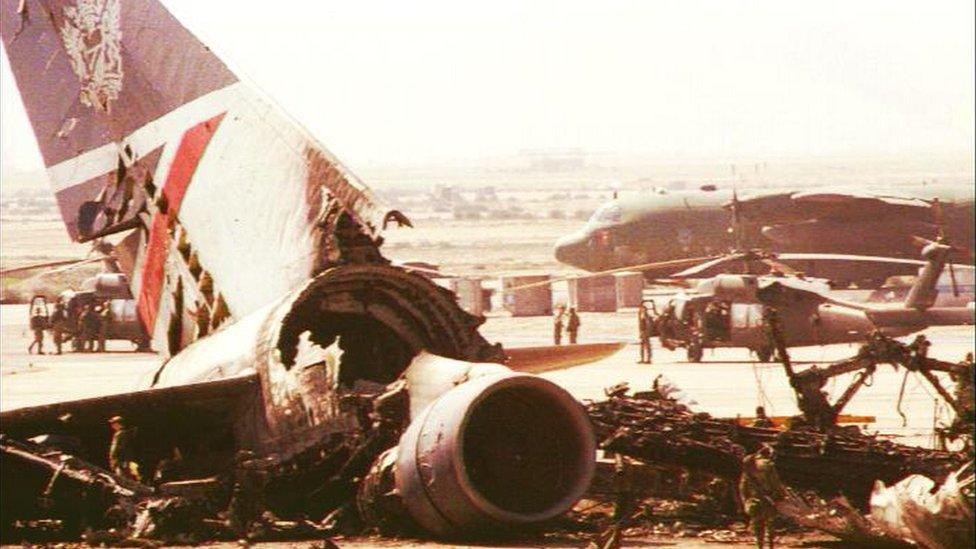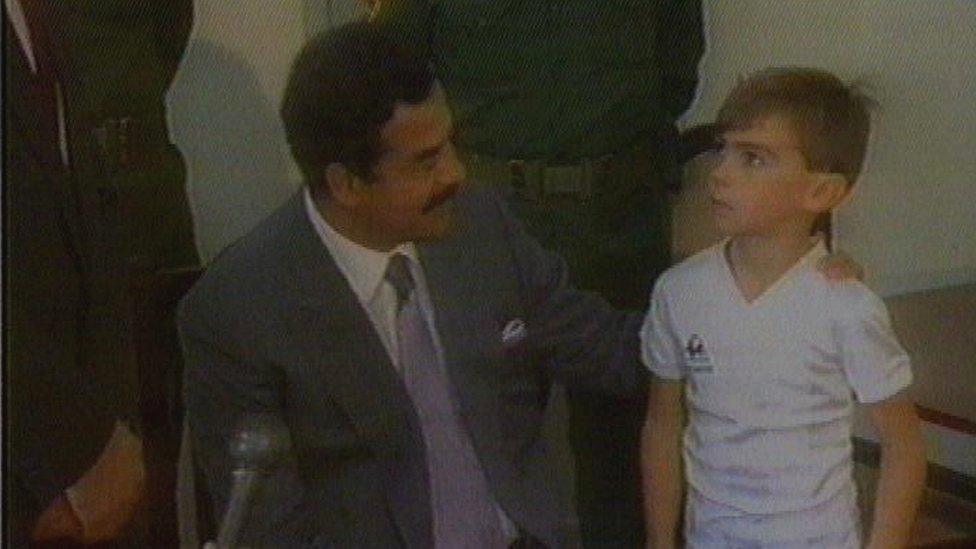Gulf War 'human shield' hostages set to take legal action
- Published

Barry Manners (pictured in 2020) says there have been "years of cover-up and bare-faced denial"
British Airways passengers and crew taken hostage in Kuwait are set to take legal action against the government and the airline, lawyers say.
Barry Manners, from Kent, was among passengers on a British Airways flight to Malaysia that landed in Kuwait to refuel in 1990 as Iraqi forces invaded.
McCue Jury and Partners said it is representing victims who want to ensure "the truth is fully disclosed".
BA said government records showed it had not been warned about the invasion.
The government said the blame "lies entirely with the government of Iraq at the time".
British Airways Flight 149 touched down at Kuwait International Airport in the early hours of August 2 1990 as Iraqi armed forces were invading.
More than 300 people onboard were detained by Iraqi troops, marking the start of an ordeal lasting almost five months as they were used by Saddam Hussein as "human shields" against western attacks.

After the crew and passengers had disembarked, the aircraft was destroyed on the runway
Those on board suffered abuse, violence, and even mock executions.
Mr Manners, who lives in Botany Bay in Kent, has previously said: "There were a couple of occasions when I was told I was going to be shot, the guard came out in a rage, kicked me around a bit, put a gun against my head and pulled the trigger a few inches away."

What happened to flight BA149?
Left London on 1 August 1990 bound for India and Malaysia.
Iraqi troops seized passengers and crew when it refuelled in Kuwait.
They were taken to strategic locations in Kuwait and Iraq to prevent bombings.
Hundreds of UK expats were used in same way.
Freedom came five months later but many suffered post-traumatic stress.
After the crew and passengers had disembarked, the aircraft was destroyed on the runway.

Documents released in November 2021 showed the Foreign Office was warned by the British ambassador in Kuwait that Iraqi forces had crossed the border an hour before the flight landed.
The information was never passed to BA, which was unable to take action to divert the flight, according to the Foreign Office files released to the National Archives.
There have been claims that a group of around 10 men who were the first to disembark when the plane landed were special forces troops, but this has always been denied by the UK government.
But McCue Jury and Partners said "evidence exists" that the government and BA "knew the invasion had already begun" when they allowed the plane to land because it was being used to insert a team into Kuwait "for a special military operation".
The firm says it intends to bring the claim to the High Court in London in the next few months.
It said each of the hostages "may claim an estimated average of £170,000 each in damages".

Five-year-old Stuart Lockwood was pictured with Saddam Hussein, who was trying to show the world the hostages were being treated well
Some of the hostages suffered post-traumatic stress after being subjected to abuse and witnessing atrocities.
Mr Manners said: "We were not treated as citizens, but as expendable pawns for commercial and political gain.
"A victory over years of cover-up and bare-faced denial will help restore trust in our political and judicial process."
A government spokesman said: "The responsibility for these events and the mistreatment of those passengers and crew lies entirely with the government of Iraq at the time."
A BA spokesman said: "Our hearts go out to all those caught up in this shocking act of war just over 30 years ago, and who had to endure a truly horrendous experience.
"UK government records released in 2021 confirmed British Airways was not warned about the invasion."

Follow BBC South East on Facebook, external, on Twitter, external, and on Instagram, external. Send your story ideas to southeasttoday@bbc.co.uk.
Related topics
- Published11 December 2020
